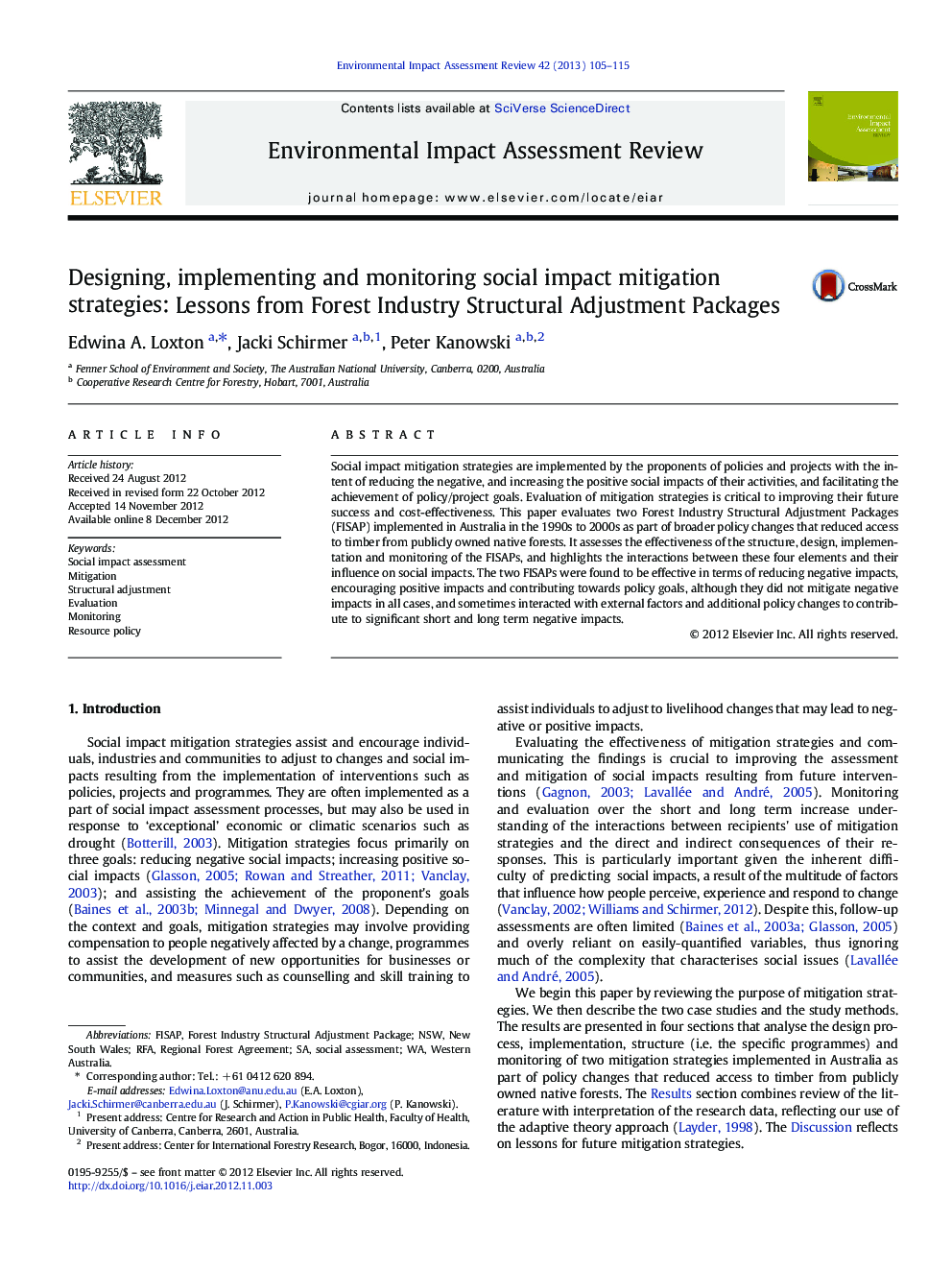| Article ID | Journal | Published Year | Pages | File Type |
|---|---|---|---|---|
| 1052804 | Environmental Impact Assessment Review | 2013 | 11 Pages |
Social impact mitigation strategies are implemented by the proponents of policies and projects with the intent of reducing the negative, and increasing the positive social impacts of their activities, and facilitating the achievement of policy/project goals. Evaluation of mitigation strategies is critical to improving their future success and cost-effectiveness. This paper evaluates two Forest Industry Structural Adjustment Packages (FISAP) implemented in Australia in the 1990s to 2000s as part of broader policy changes that reduced access to timber from publicly owned native forests. It assesses the effectiveness of the structure, design, implementation and monitoring of the FISAPs, and highlights the interactions between these four elements and their influence on social impacts. The two FISAPs were found to be effective in terms of reducing negative impacts, encouraging positive impacts and contributing towards policy goals, although they did not mitigate negative impacts in all cases, and sometimes interacted with external factors and additional policy changes to contribute to significant short and long term negative impacts.
► Mitigation strategies aim to reduce negative and enhance positive social impacts ► Mitigation strategy design, implementation, and monitoring are critical to success ► Effective mitigation enhanced the capacity of recipients to respond to change ► Mitigation strategies influenced multiple interacting positive and negative impacts ► Success required good communication, transparency, support, resources and timing
